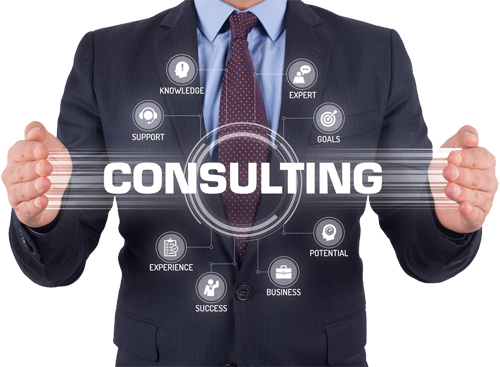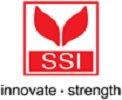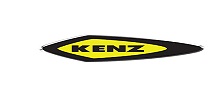
Lithium Ion Battery
It is a process that produces battery packs for electric vehicles, smartphones, laptops and other electronic devices. The lithium-ion battery assembly is an important part of the lithium-ion production process as it helps in assembling individual cells into battery packs.
A lithium-ion battery assembly line must be highly automated to reduce human intervention, increase efficiency, and cut maintenance costs. Let’s take a look at how these advantages can be achieved by setting up a lithium-ion battery assembly line in your manufacturing plants. In this article, you will learn about the various steps involved in setting up a Li-ion Battery Assembly Line along with their detailed explanation and an example of one such setup.
Lithium-ion Batteries Business
Starting a manufacturing business for lithium-ion batteries can be a challenging but rewarding venture. As the world moves towards greener technologies, the demand for lithium-ion batteries is growing at an unprecedented rate. However, starting a manufacturing business requires careful planning, a significant investment of resources, and a deep understanding of the industry. In this article, we will outline the key steps involved in starting a manufacturing business for lithium-ion batteries.
Step 1: Conduct Market Research
Before starting any business, it is crucial to conduct market research to assess the viability of the business idea. In the case of a lithium-ion battery manufacturing business, it is essential to research the current and projected demand for lithium-ion batteries in different industries, including electric vehicles, renewable energy storage, and consumer electronics.
Step 2: Develop a Business Plan
Once you have conducted market research and determined the viability of the business, the next step is to develop a comprehensive business plan. The business plan should outline the company’s objectives, financial projections, marketing strategies, and operational procedures.
Step 3: Obtain the Necessary Licenses and Permits
To start a manufacturing business for lithium-ion batteries, you will need to obtain the necessary licenses and permits from the relevant government agencies. The requirements vary depending on the jurisdiction, but typically include environmental permits, manufacturing licenses, and safety certifications.
Step 4: Secure Funding
Starting a manufacturing business for lithium-ion batteries requires a significant amount of capital investment. Depending on the size of the operation, you may need to secure funding from investors or financial institutions.
Step 5: Set Up the Manufacturing Plant
Once you have secured funding and obtained the necessary licenses and permits, the next step is to set up the manufacturing plant. This involves identifying a suitable location, purchasing the necessary equipment, and hiring staff.
Step 6: Source Raw Materials
The production of lithium-ion batteries requires several raw materials, including lithium, cobalt, nickel, graphite, and manganese. It is important to identify reliable suppliers for these raw materials to ensure a consistent supply chain.
Step 7: Implement Quality Control Measures
Quality control is essential in the manufacturing of lithium-ion batteries to ensure that the batteries meet the required standards. You will need to implement quality control measures at every stage of the production process to identify and correct any defects.
Step 8: Develop a Marketing Strategy
Once you have set up the manufacturing plant and started production, the next step is to develop a marketing strategy to reach potential customers.
Starting of Lithium-ion Business
1. Know What To Manufacture
Batteries are an important part of the transition to a more renewable future. This business is being fuelled by the increased popularity of green energy solutions such as electric cars and Solar panels installations.
China manufactures more than 80% of the world’s lithium-ion batteries. Over the next few years, the European Union intends to invest billions in this technology. American businesses, particularly start-ups, are experimenting with new battery technologies and business strategies.
2. Finances (Cost Involved in Manufacturing)
Lithium batteries are expensive, and you should be aware of this when shopping for them. As a result, the profit margin is quite important. Before selecting how much profit you want, you must consider several things.
Factors such as the type of client with whom you are working. Are the people to whom you’re selling lithium batteries direct users or not? Aside from that, what is the distance between your warehouse and the client? How long must the inventory be held or stored before it is exported to the client?
3. Legal Aspects
Any licences, permissions, or approvals required for operating a battery factory should be included in your business strategy. The legal requirements vary depending on the state in which you intend to do business, as well as your business strategy, services, battery manufacturing equipment, and other considerations. Ensure that your work conforms to all regulatory requirements.

Who are we?
NPCS is a well-known name in the field of engineering and industrial consulting. The company offers a wide range of services, from project reports to startup business plans and concept submissions. NPCS is also a leading provider of books and project reports on a variety of topics.
NPCS has a long history of providing quality services to its clients. The company was founded in 1992, and since then, it has helped thousands of clients in India and around the world with their projects. NPCS is a one-stop shop for all your engineering and industrial consulting needs. Whether you’re looking for a comprehensive project report or a simple concept submission, NPCS can help you get the job done.
Reasons for Buying NIIR Report
- Our research report helps you get a detailed picture of the industry by providing an overview of the industry along with the market structure and classification.
- Our report provides market analysis covering major growth driving factors for the industry, the latest market trends and the regulatory framework of the industry.
- Our Report provides an analysis and in-depth financial comparison of major Players / Competitors.
- Our Report provides indispensable buyers’ data with their company financials as well as the contact details, which can be an important tool in identifying the target customers.
- Our report provides forecasts of key parameters which help to anticipate the industry performance.
- We use reliable sources of information and databases. And information from such sources is processed by us and included in the report.


















